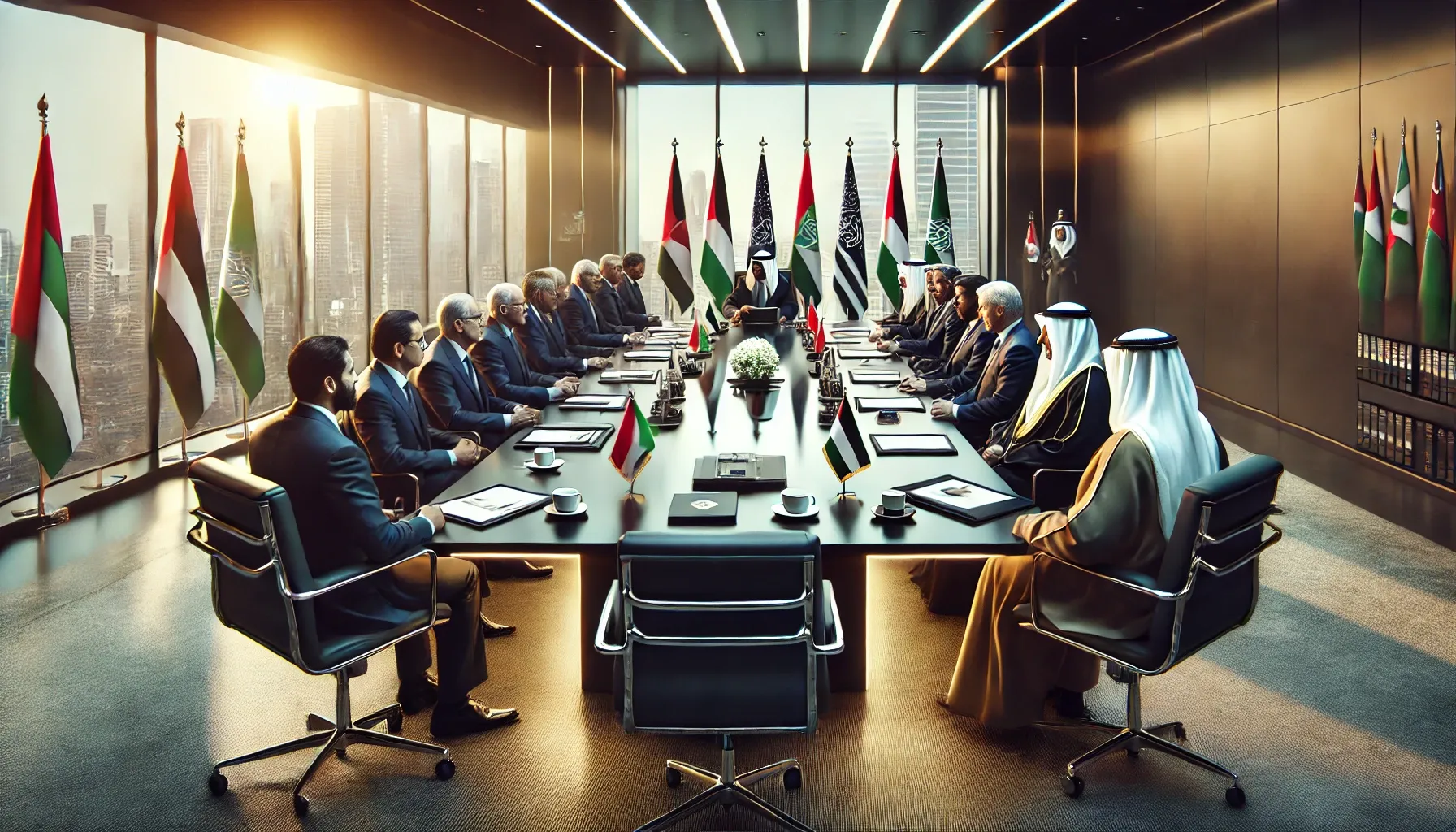Arab leaders meet in Riyadh to discuss an alternative to Trump's Gaza plan, aiming to prevent Palestinian displacement and seek a comprehensive solution at the March Arab League summit.

In Riyadh, Saudi Arabia, leaders from seven Arab nations recently gathered to discuss a response to former U.S. President Donald Trump's controversial Gaza plan. The meeting, held on Friday, aimed to formulate an alternative strategy to prevent Palestinian displacement and address the future of Gaza.
Background of the Discussion:
- Trump’s Gaza Plan proposed the U.S. “taking over” Gaza, forcibly displacing its residents and turning the enclave into a Middle Eastern "Riviera". This proposal has been met with strong opposition from Arab leaders, who argue that it undermines Palestinian self-determination, violates the rights of Gaza residents, and risks escalating regional conflict.
- The Arab leaders hope to present a unified alternative plan at the upcoming Arab League meeting on March 4, to counter the U.S. initiative.
Key Participants in the Riyadh Meeting:
The gathering in Riyadh was convened by Saudi Crown Prince Mohammed bin Salman and attended by:
- Jordan’s King Abdullah II
- Egyptian President Abdel Fattah el-Sisi
- Qatari Emir Sheikh Tamim bin Hamad Al Thani
- UAE President Sheikh Mohammed bin Zayed Al Nahyan
- Kuwaiti Emir Sheikh Meshal al-Ahmad Al Sabah
- Bahrain’s Crown Prince Salman bin Hamad Al Khalifa
Meeting Details:
- The Egyptian reconstruction plan was discussed, a three-phase plan aimed at bringing peace between Hamas and Israel, including:
- A first phase focused on a ceasefire and prisoner exchange.
- A second phase would ensure the complete cessation of hostilities.
- A third phase would focus on rebuilding Gaza, which has suffered extensive destruction.
- Challenges remain, notably how to fund reconstruction efforts, with estimates from World Bank, UN, and EUsuggesting the cost would exceed $53 billion—with $20 billion required in the first three years alone.
- The question of political and security control over Gaza post-conflict is another unresolved issue, as Israel opposes Hamas' continued control, and Palestinian Authority governance faces international support but no consensus.
Urgency for a United Arab Response:
The urgency of a resolution is particularly felt by Egypt and Jordan, both under pressure from the U.S. to accept displaced Palestinians. The U.S. administration has threatened to withhold financial aid to these countries if they do not comply, but both nations have firmly rejected Trump’s plan.
Alternative Arab-led Plan:
Cairo has not publicly released its reconstruction plan, but former Egyptian diplomat Mohamed Hegazy outlined a three-phase strategy:
- Phase 1 (Six months): Early recovery and debris removal.
- Phase 2: International conference to plan Gaza’s infrastructure restoration.
- Phase 3: Provide housing, services, and establish a political track towards a two-state solution for Palestinian statehood.
Expert Insights:
Abdulaziz al-Ghashian, director of research at Riyadh-based Observer Research Foundation Middle East, emphasized the interconnected nature of economics, politics, and security in formulating an effective Arab-led solution. Any plan must support Palestinian self-determination and not be driven solely by international politics or security concerns.
Source: AL Jazeera





